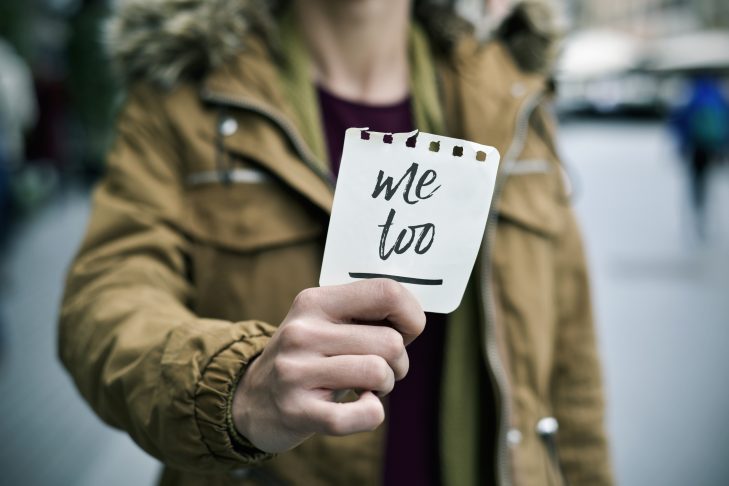Many people who identify as part of the Jewish community are very familiar with the idea of a “nice Jewish boy” or “nice Jewish girl.” We live with the myths that Jews don’t behave abusively and certainly never physically harm their partner or children. Our culture tells us that a Jewish home is loving and safe. While that happily is often the case, it is not always so.
People outside the Jewish community also know these myths. We received a call a while back from a woman who had contacted a domestic abuse hotline in another state years ago. When she started to tell the hotline worker her story, the worker replied, “My mother told me that Jewish men don’t do that!” The caller–startled, embarrassed and upset–got off the phone quickly and did not reach out for help again for another five years. The worker’s reaction made her feel like the hotline’s services were not meant for her.
These kinds of myths can make it hard to recognize dating and domestic abuse. They can make it hard to understand controlling behavior when it happens in the home of a fellow congregant or a friendly neighbor. When someone in our community says, “My partner hates my cooking,” or, “My partner hates the way I look now,” we often rush to offer Bubbe’s unfailing brisket recipe or suggest a makeover day at a favorite salon or store, rather than stepping up to ask some deeper questions and invite further conversation.
These well-meaning responses send the message that the person should find ways to fix themselves rather than opening a door to allow them to talk about what’s really going on at home. We also often don’t think to challenge the statements themselves, saying things like, “Don’t worry, you look fine,” rather than, “I don’t think that’s an OK thing to say to you,” or, “What else does your partner say that isn’t OK about you?” or, even in certain circumstances, “What happens when you disagree about something?”
The #MeToo movement has given voice to many who have experienced harassment and abuse in professional and personal relationships. It has begun to shed a bit of light on the depth and prevalence of the closely-related issues of sexual harassment, sexual assault and domestic abuse. It has offered a glimpse into the many faces of those who have experienced this behavior and, in some cases, those who have perpetrated it. A number of people have been surprised by how many #MeToo voices are family members, peers and friends they know and care about. Additionally, a number of people have been surprised to hear about Jewish people being violated and Jewish people abusing power in such ugly ways.
It is time to examine our own myths about harassment and abuse in the Jewish community and reach out to those who might need help or support. Looking ahead, we will soon be preparing for Passover, a festival celebrating both the long-awaited arrival of spring and new beginnings, as well as the powerful story of a people moving from enslavement toward freedom. It is a meaningful season to open or strengthen this dialogue about acknowledging and ending abuse in our own community. Change is surely in the air.
JF&CS Journey to Safety is committed to preventing domestic abuse in the Jewish community and beyond. To have community-wide impact we offer awareness-raising workshops to congregations, organizations and social groups. For more information about how we can help you bring this conversation to teens and adults in your community, please contact Elizabeth Schön Vainer.
This post has been contributed by a third party. The opinions, facts and any media content are presented solely by the author, and JewishBoston assumes no responsibility for them. Want to add your voice to the conversation? Publish your own post here. MORE


